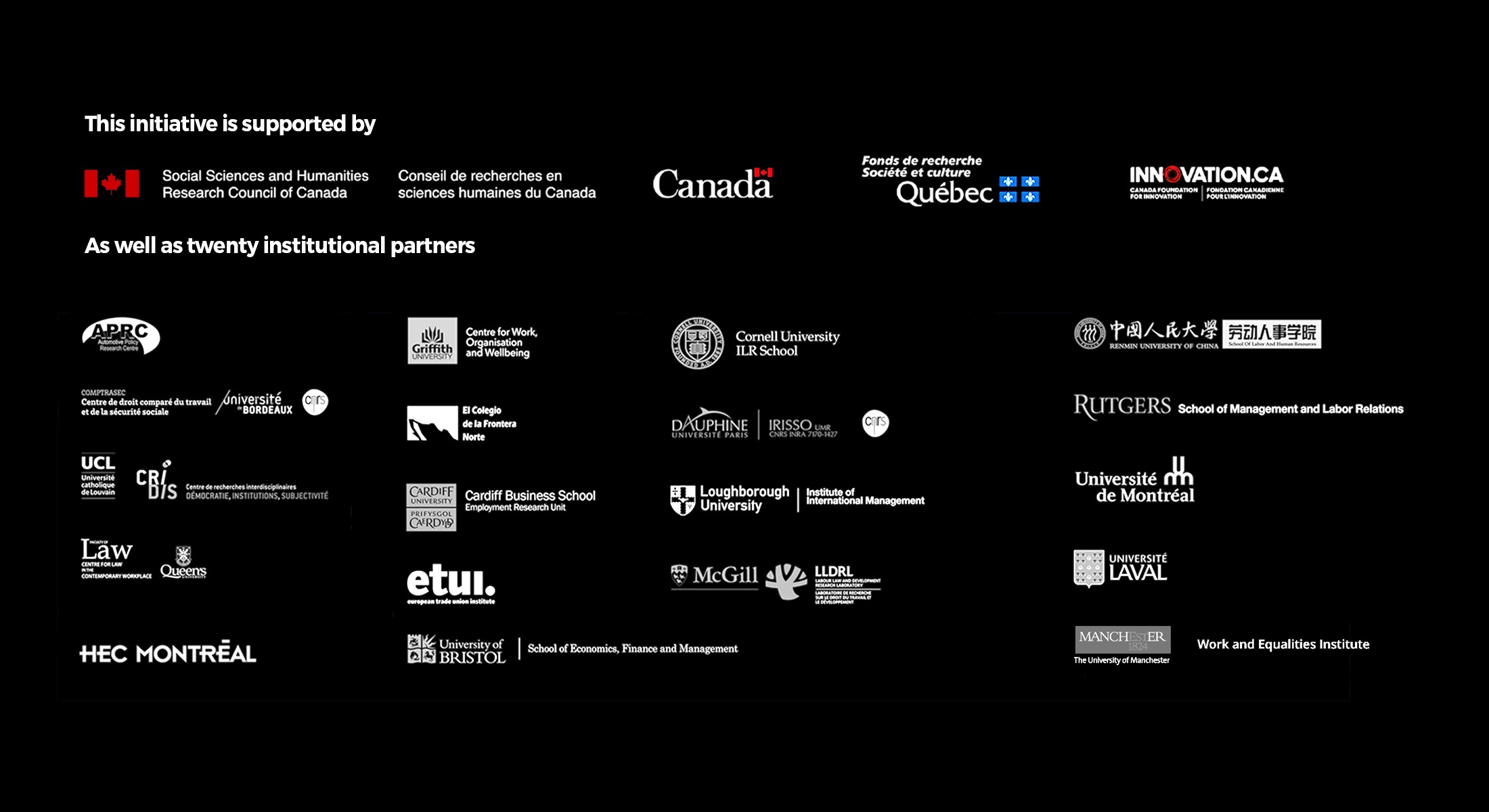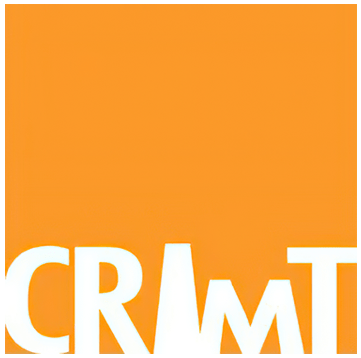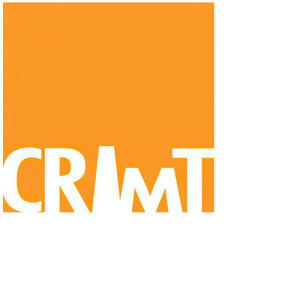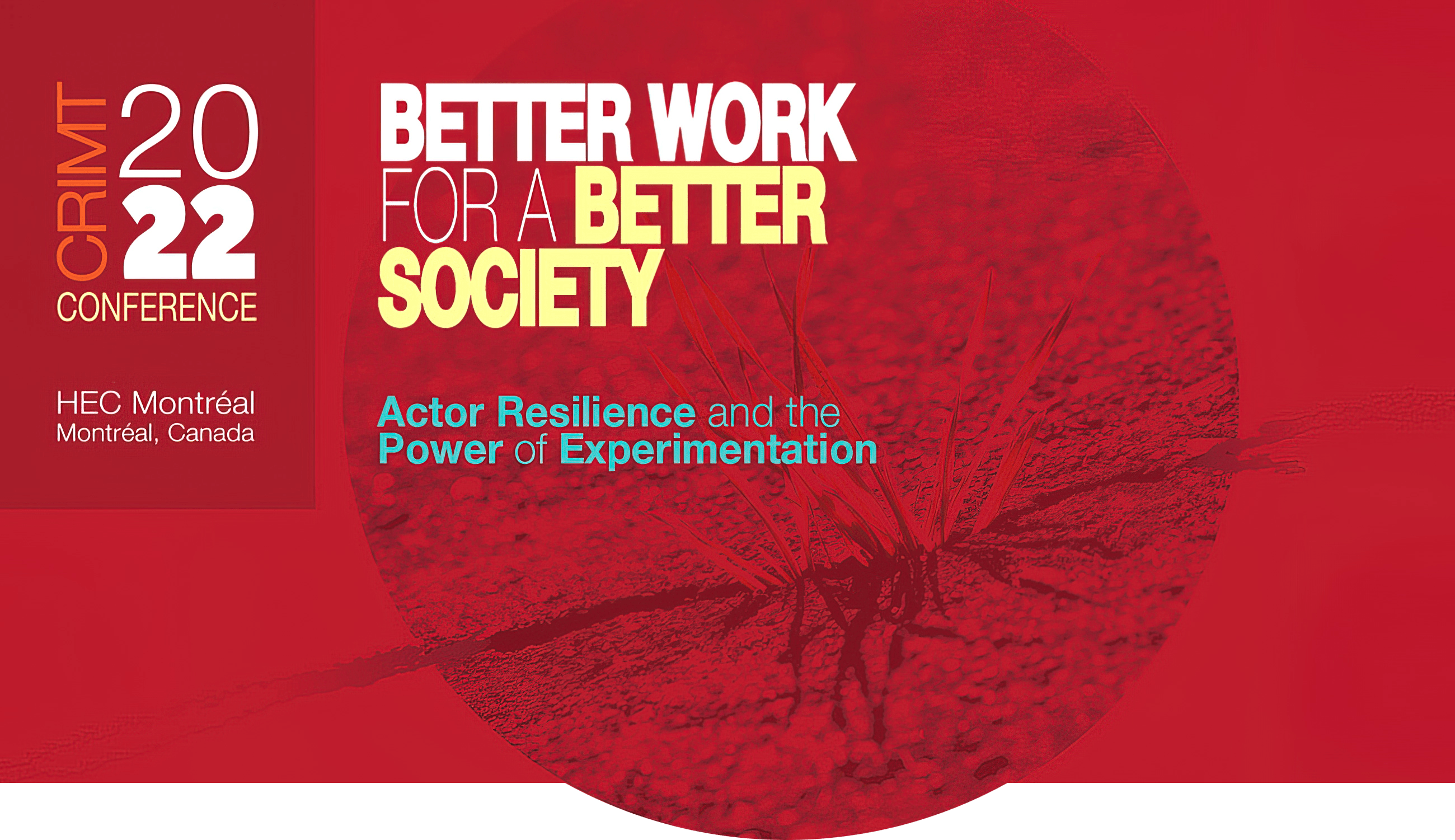
CALL FOR PAPERS
NOW CLOSED
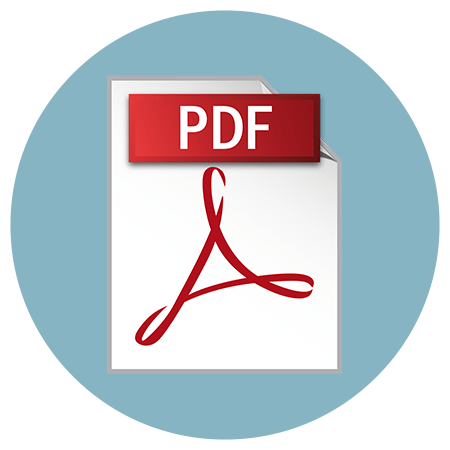
![]() Download the call in PDF format
Download the call in PDF format
Over the past few decades, significant changes have been disrupting the world of work: digital technologies, the breakdown of corporate boundaries, the reshaping of global supply chains, climate change, global pandemic outbreaks, shifts in identities and values, political unrest, resurgence of geopolitical tensions, and changes in public policy, to name only a few.
Such changes are having widespread and profound effects. Communities are fragmenting, gripped by a resurgence of political violence and social anomie, and divided between economic nationalism, job protection and sustainable development. We are also witnessing trends marked by the intensification, extensification, commodification and dematerialization of work, as well as by the fracturing of the environments in which work is carried out. The multiplication of invasions of privacy, the individualization of social risks, the intensification of migratory flows, and increases in disparities of power and income, including geopolitical, are also repercussions of these disruptions.
These dynamics seem out of synch with the aspirations for better work, by which we mean productive, innovative, healthy and inclusive work, in which individuals live free from excessive insecurity, unaccountable control over their working lives, conflicts between personal and professional life, and can express their voice individually and collectively. These effects are not conducive to achieving better, more just, peaceful, sustainable, open and democratic societies.
However, these disruptions also open the way to various forms of experimentation, reflecting the resilience and mobilization of actors in the world of work. Often carried out in a context of great uncertainty, such experimentations have varying purposes and can produce contrasting results. While some lead to positive effects on the quality of work and the societies we live in, others are indifferent or even result in a deterioration of the quality of work and of the social fabric. We believe that it is important to understand these divergences.
The challenge is to describe, analyze and compare these experimentations – including those conducted in response to the major challenges of our time (for example, geopolitical tensions, Covid-19 or the climate crisis) – in order to better understand how certain actors or groups of actors are able to appropriate, mobilize and transform institutions of regulation in favour of an improvement (or deterioration) in the quality of work, or the societies in which these experimentations are carried out. Ultimately, we wish to draw lessons from these experiences.
This conference invites proposals for papers or workshops highlighting situations in which the power of experimentation of actors, whether they are trade unions, employers, governments, civil society or acting collectively, is deployed. The organizers welcome proposals that explore various forms of experimentation, the processes that underlie them and the effects they have on the quality of work and our societies.
These experimentations may involve the abandonment, recombination, or creation of legal or regulatory frameworks, organizational or management practices, modes of social benefits, types of local, regional and sectoral governance, models of skill acquisition, of collective representation and social and environmental pacts, etc.
The exploration of the effects of such experimentation on the quality of work can involve one or more of the dimensions described below:
1) Allocation of social risk concerns how individuals construct their life trajectories at work and beyond (e.g., personal life, into retirement); whether such risk and life chances are individualized or mutualized; how equality and inequality, wealth and opportunity are organized and allocated at work and in society.
2) Subordination and autonomy at work can be manifested through basic dignity, health and safety, work intensity and diversity, possibilities to contribute to work organization and work outcomes, the psychosocial dimensions of work and wellbeing, and the ability to negotiate the boundaries between work and other aspects of people’s lives.
3) The expressive and democratic dimensions of work concern the acquisition of skills and collective capabilities, in terms of individual self-realization, the ability to chart life courses, democratic participation and collective voice at work, and possibilities of engagement in the ethical and sustainable development of organizations, firms and communities.
Exploring the impacts of these experimentations on the improvement of our societies considers the strategies and actions that can bridge the gap between better work and better societies. It may involve examining new or redesigned forms of solidarity and risk sharing; just transition strategies on digital transformations and the climate crisis; the role of equity, diversity and inclusion; alternative forms of corporate governance; policy responses to migration crises; international institutions and transnational mechanisms for reducing power inequalities and increasing opportunities within global supply chains; the role of innovative and inclusive ecosystems; new forms of deliberation and democracy, etc.
Work is at the heart of people’s lives: it gives meaning to human activity, structures life paths and provides a vehicle for community and societal integration. If the degradation of work leads to the breakdown of the social fabric, the development of better societies is difficult to imagine without improvements in the quality of work. Such improvements should stem from the ability of actors to expand and diversify their strategic repertoires. This is why particular attention must be paid to the resilience of actors, which conditions their ability to engage in experimentation processes. Their resilience can be expressed through new interpretations, alliances, resources, strategies and collective capacities, including resistance. A better understanding of these processes will allow us to refine our understanding of the social actors, the logic that drives them and the experimentations they engage in. Sharing these experimentations will also allow us to better understand why, under certain conditions, these processes lead to an improvement or a deterioration of the quality of work, and then to draw lessons from them as regards the consequences of better and worse work for the societies in which we live.
